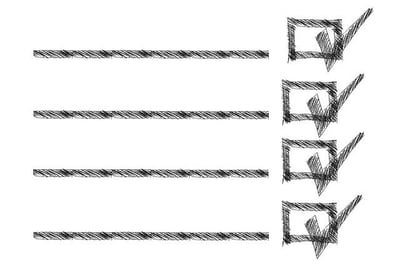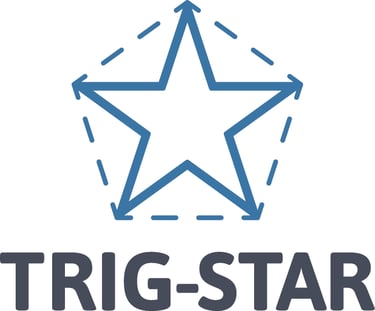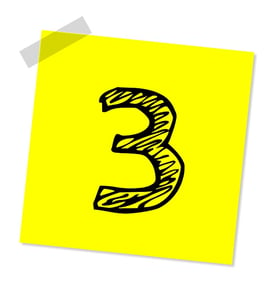
Math competitions are a fantastic extracurricular activity for high school students. Math competitions help students improve their math skills, earn scholarships, and stand out as college applicants.
If you are interested in getting into high school math competitions but aren’t sure where to begin, this article is for you. We’ll give you all the details on 13 math competitions for high school students, including the eligibility requirements and cash prize opportunities for each competition.
We’ll also briefly explain how to decide which math competition is right for you and how math competitions can help you shine as a college applicant. So let’s get started!

How to Use This List
We know that different students have unique reasons for wanting to participate in high school math competitions. With this in mind, we carefully selected a variety of math competitions that will suit the needs and priorities of a range of students.
Our list of 13 math competitions includes:
- Competitions located in different regions of the U.S.
- Competitions for individual students and for teams of students
- Competitions that test students on different mathematical subjects
- Competitions that provide cash prizes
- Competitions that give non-monetary awards
That way, you can search our list for the competitions that are right for you! Also, to account for the varying abilities of high school students, we also made sure to include math competitions that range from extremely competitive to more inclusive.
We also want to note that this list of math competitions isn’t a ranking from best to worst or worst to best. It’s simply meant to give you the lay of the land concerning high school math competitions so you know that there are a variety of options for student math enthusiasts of all kinds!

13 High School Math Competitions
Our list of thirteen different types of high school math competitions has something for every kind of math student. You can check them all out below!
#1: American Mathematics Competition (AMC) 10/12
- Eligibility: 10th graders – 12th graders
- Cash Prizes: No
The AMC 10 and AMC 12 are both 25 question, 75 minute multiple-choice mathematics exams designed to promote the refinement of problem solving skills in high school student competitors.
The AMC 10 and AMC 12 are the first exams in a series of math exams that progress from the local, to the national, to the international level. Students who are top performers on the AMC 10 and AMC 12 will be eligible for invitations to the next, more difficult exams in the AMC series (we’ll talk more about that in a second).
The AMC 10 covers the U.S. high school curriculum up to 10th grade and is for students in 10th grade and below or under 17.5 years of age. The AMC 12 covers the entire high school math curriculum including trigonometry, advanced algebra, and advanced geometry, but does not include calculus. Students in grade 12 or below and under 19.5 years of age on the day of the contest can take the AMC 12.
While the AMC 10 and AMC 12 exams don’t have scholarships of their own, taking the AMC 10/12 is a crucial step toward eligibility for other math competitions and scholarships. If you have any interest in being considered for more difficult invitational math competitions (with bigger prizes!), it’s important that you take an official AMC 10 and AMC 12 exam as an initial step.
#2: Caribou Math Contests
- Eligibility: Kindergarten – 12th graders
- Cash Prizes: Yes
The Caribou Mathematics Competition is a worldwide math competition that is held totally online. This contest is held six times throughout the school year, and students that complete all six tests can compete for the “Caribou Cup.” Each contest engages students in 50 minutes of math puzzles, interactive questions, and a wide variety of problem solving activities.
Not only is the Caribou Mathematics Competition open to international participants, it also offers contests for elementary through high school aged students. The high school level Caribou Math Contests are divided into two age-based categories. Grades 9 and 10 participate in the same contests, and grades 11 and 12 participate in the same contests.
Cash prizes are given out to the top performing students and schools in the Caribou Cup after the final contest each year, which is held in May. Students are ranked based on the total of their top scores in five out of the six contests. A student’s cash prize amount is determined based on their percentage score multiplied by a set dollar amount based on their ranking. Here’s how that works out:
- 1st place student: $100 x percentage score
- 2nd place student: $75 x percentage score
- 3rd place student: $50 x percentage score
- 4th and on: $30 x percentage score
Students will receive cash prizes as long as funds last in the prize pool for each age group.
#3: American Regions Mathematics League (ARML)
- Eligibility: 9th graders – 12th graders
- Cash Prizes: Yes
The ARML is an annual, national high school mathematics competition held simultaneously on four different university campuses in the United States: the University of Iowa, Penn State, University of Nevada at Las Vegas, and the University of Alabama in Huntsville.
This math competition requires that students compete in teams consisting of 15 members, though the format of the competition will require that students answer questions both individually and as a team. Students can form their own teams and register for the ARML competition online — but you’ll have to bring two coaches with you to the competition!
So what do you need to know to compete in the ARML? ARML problems cover mathematical topics including algebra, geometry, number theory, combinatorics, probability, and inequalities. Knowledge of calculus isn’t required for this competition, but may help participants solve problems more quickly or efficiently.
The ARML provides several monetary awards to competitors. The competition gives smaller gift card awards to the top two teams in different divisions, and $2000 in gift cards to the top 20 individual competitors. The top individual competitor overall will receive an additional $100 gift card.

If you’re a trigonometry whiz, then Trig-Star may be the competition for you!
#4: Trig-Star
- Eligibility: 9th graders – 12th graders
- Cash Prizes: Yes
Trig-Star is an annual, national competition for high school students who excel at trigonometry. The purpose of the Trig-Star competition is to recognize students who excel at trigonometry, to introduce students to practical applications of mathematics in professional environments, and to grow awareness of surveying as a profession among mathematically-skilled high school students.
The Trig-Star competition occurs at two levels. The Level 1 competition occurs at local high schools, and there is one winner from each local high school. From there, a winner is chosen from each state based on the performance of individual school winners. Level 1 winners go on to compete at the Level 2 competition, which is the national test. The state winner from each participating state is eligible to compete for the national Trig-Star title.
Cash awards are given to top competitors at the national Trig-Star competition. The first place winner receives a $2000 award, the second place winner receives $1000, and the third place winner receives $500.
Also, if you compete in the Trig-Star competition at some point during your high school career, you’re eligible to apply for a $5000 scholarship. You can apply for this scholarship even if you didn’t win your Trig-Star competitions, but you do have to be pursuing a degree in land surveying. You can learn more about this scholarship opportunity here.
#5: TEAMS
- Eligibility: 7th graders – 12th graders
- Cash Prizes: No
TEAMS is an annual, state and national mathematics, science, and engineering competition for middle and high school students.
TEAMS is designed to help students develop their STEM skills by working in teams of two to four students to solve real-world engineering challenges. The competition consists of a 90 minute multiple choice section, an essay, and a design and build component.
TEAMS is open to all interested high school students, who will compete at either the 9th/10th grade level or the 11th/12th grade level during the competition. Students may first compete at state-level TEAMS competitions, then advance to the national TEAMS competition if they qualify.
The TEAMS competition doesn’t award cash prizes, but this prestigious competition is a good way to catch admissions counselors’ eyes, especially if you’re applying to competitive engineering universities.
#6: SCUDEM
- Eligibility: 9th graders – College undergraduates
- Cash Prizes: No
SCUDEM, or “the SIMIODE Challenge Using Differential Equation Modeling,” is a team-based math challenge that takes place over a week-long period.
During this week, teams work on developing approaches and solutions to a differential equations modeling problem of their choice, then prepare an executive summary and 10 minute presentation. At the end of the week, teams travel to a nearby, regional host site to present their work to the judges.
Teams of three high school or undergraduate students can compete in SCUDEM. Winning teams are awarded designations of “outstanding” for first place, and “meritorious” for second place, but there are no monetary prizes for SCUDEM winners.

If you prefer competing on a team, the M3 Challenge might be for you.
#7: MathWorks Math Modeling (M3) Challenge
- Eligibility: 11th graders – 12th graders
- Cash Prizes: Yes
The M3 Challenge is a contest that gives high schoolers the chance to experience working as a team to tackle a practical problem under time and resource constraints. The challenge is meant to give high schoolers a sense of the kinds of problems faced by professional mathematicians working in the real world. Students who are gifted at coding might consider this competition since extra credit awards are available for teams who incorporate outstanding code as part of their solution.
High school juniors and seniors from anywhere in the U.S. are eligible to participate in the M3 Challenge. Teams of students must consist of three to five people and one teacher-coach. Another cool thing? The M3 Challenge is entirely online until the final round, and there are no participation fees!
At the end of the M3 Challenge, six finalist teams are identified and invited to present their work in New York City. The finalist teams are also eligible to receive cash awards, which are as follows:
- M3 Challenge Champions (Summa Cum Laude Team Prize)
$20,000 - M3 Challenge Runner Up (Magna Cum Laude Team Prize)
$15,000 - M3 Challenge Third Place (Cum Laude Team Prize)
$10,000 - M3 Challenge Finalist (Meritorious Team Prize)
$5,000 (3 teams)
In addition to these top prizes, there are also awards in the amount of $1500 and $1000 for semi-finalist and honorable mention teams. Finally, M3 Challenge finalists, semi-finalists, and honorable mention teams may be invited to submit applications for summer internships in STEM.
#8: Math Prize for Girls
- Eligibility: 11th graders and below (only open to students who identify as female)
- Cash Prizes: Yes
Math Prize for Girls is an annual competition held at MIT. The competition consists of 20 challenging problems that test mathematical creativity and insight, and all 20 questions must be answered in two and a half hours. Only high-school level mathematics will be covered in the questions, but there are no questions pertaining to calculus in the contest!
The Math Prize for Girls math competition is open to individuals who are female in gender identity and who are in the 11th grade or below in the U.S. There is an online application process that interested students must complete, and it’s important to note that a key requirement for applying is having taken an official administration of the AMC 10 or AMC 12 exam.
The Math Prize for Girls competition awards a total of $50,000 in cash prizes to the top ten winners. The award amounts break down as follows:
- 1st prize: $25,000
- 2nd prize: $10,000
- 3rd prize: $5,000
- 4th prize: $2,000
- 5th prize: $2,000
- 6th prize: $1,000
- 7th prize: $1,000
- 8th prize: $1,000
- 9th prize: $1,000
- 10th prize: $1,000
There are also smaller cash prizes for honorable mention awards, and the top 35 performers are invited to compete in the Advantage Testing Foundation Math Prize Olympiad, a proof-based contest that is administered in November.
#9: MathCON
- Eligibility: 4th graders – 12th graders
- Cash Prize: None
MathCON is a nonprofit national mathematics organization recognized for its annual student math competition for students in grades 4-12. The organization has helped 200,000 participants advance their math skills through this competition since 2008. A major pro of the MathCON competition is that, in addition to public school students, private, charter, and homeschooled students are eligible to participate as well.
MathCON 2021 was held virtually in March due to the COVID-19 pandemic. The organization hasn’t announced whether future competitions will be held in person or in a virtual format, so it’s important to keep up with the MathCON website to ensure you have the most current information about how the competition will be hosted.
Schools are responsible for registering either individual students or entire teams of competitors for MathCON. If you are interested in participating in MathCON, it’s crucial to talk to your math teachers for help with getting registered and preparing for the competition.
The Mu Alpha Theta Mathematical Minutes Video Contest gives you the chance to make a creative, math-themed video for the shot at a cash prize. You can check out highlights from the 2019 competition above.
#10: Mu Alpha Theta Mathematical Minutes Video Contest
- Eligibility: 9th graders – 12th graders
- Cash Prizes: Yes
The Mathematical Minutes Video Contest invites students who are members of Mu Alpha Theta to select a math topic and create a fun, informative, two- to five-minute video that would be of interest to high school students. Videos may include mathematical content through high school calculus, and final versions of students’ videos must be uploaded to YouTube for submission.
This contest allows students the opportunity to compete multiple years in a row because the contest is divided up into categories based on different types of math. Students no higher than geometry or Algebra 2 compete in the THETA category, students in precalculus are in the ALPHA category, and calculus students are in the MU category.
Individual high schools select student videos to be submitted to the contest, and only the top video submission per school is eligible for cash prizes. Eight videos are chosen for a final round of judging, and a $3,000 award will be split up among these eight finalists based on video quality.
#11: Johns Hopkins Math Tournament (JHMT)
- Eligibility: 6th graders – 12th graders
- Cash Prizes: No
The JMHT is an annual math competition open to middle school and high school students located in and around Baltimore. The JMHT competition tests competitors’ ability with proofs, algebra and number theory, geometry, calculus, probability and combinatorics, and general math. Students compete as individuals and on a team. Individual competitors are scored on a two hour test, and teams compete in a series of two 45-minute proof rounds.
The JMHT stands out in the realm of math competitions because it includes calculus, which is not typical for most high school math competitions. Winners at the JHMT don’t receive cash prizes, but they do get the opportunity to network with Johns Hopkins professors and earn a prestigious award that can help their college applications stand out.
#12: Harvard/MIT Mathematics Tournament (HMMT)
- Eligibility: 9th graders – 12th graders
- Cash Prizes: N/A
The HMMT is an extremely competitive, student-organized math tournament that occurs each year in November and February. Most students compete in teams of four to six or teams of six to eight, but the competition also has space for a limited number of individual competitors as well. Students can apply to participate in the November or February tournaments online.
Individual test rounds consist of ten problems and last for 50 minutes. On these rounds, all answers are single values, or short answers. Team rounds are 60 minute, ten problem tests where all team members work together.
Students in grades 9 through 12 from all over the world are eligible to compete in the HMMT. It’s very common for top scorers from national and international math olympiads to compete at the HMMT as well.
Prizes are awarded to the ten highest-scoring individuals overall, the top ten scorers on each of the individual tests, the five highest-scoring teams on the Team Round, and the five highest-scoring teams on the Guts Round. The top ten teams overall are named the Sweepstakes winners.
#13: Purple Comet Math Meet
- Eligibility: 7th graders – 12th graders
- Cash Prizes: N/A
The Purple Comet Math Meet is another international math competition for middle school and high school students. This math competition occurs once every year–and it’s totally free! Students compete in teams of one to six people and work together to submit solutions to a series of math problems.
Middle school competitors will have 60 minutes to complete 20 problems, and high schoolers will complete 30 problems in 90 minutes. The competition designates a ten-day window during which teams can select their preferred time to complete the competition. If you’re looking for a lot of flexibility in the competition process, Purple Comet is a great choice for you!
Unfortunately, Purple Comet doesn’t specify which types of math are covered during the competition, but you can view the questions from years of past contests on their website. And while there aren’t cash prizes for this competition, it’s still a great opportunity to problem-solve with a team and network with other math enthusiasts from all over the world.

Choosing a math competition that plays to your mathematical strengths can help you increase your odds of winning.
How to Choose the Right Math Competition for You
The best way to choose a math competition to participate in is to think about your goals and how they intersect with your day-to-day life. Specifically, you should consider your ability to commit to competition prep, whether you can travel to compete, and what areas of math you excel in.
Competition Prep
We’ve already mentioned this, but some of the math competitions in our list are really competitive. If you have your heart set on winning competitions and earning scholarships, you’ll have to be all in when it comes to preparing. If you already know that you want your college applications to show off your dedication to and success in math-related extracurriculars, it might be worth it to pursue a more competitive or time-consuming math competition.
On the other hand, if you want to have a more well-rounded high school resume, there are also math competitions in our list that will give you the chance to earn awards while still leaving time for you to pursue other interests.
Ability to Travel
It’s also important to consider whether you have the ability to travel for math competitions. Some of these competitions are international or national events and may require traveling hundreds of miles from your home. While some schools will foot the bill for student travel, other competitors will have to pay their own way or fundraise in order to compete.
If this kind of commitment isn’t a good fit for your situation, keep in mind that almost every U.S. state hosts a state-wide mathematics competition for high schoolers. (You can google “math competition” and your state name to find ones that are available in your area.)
Alternatively, several math competitions, like the Harvard/MIT Mathematics Tournament and the Caribou Math Contest, offer online tournament opportunities as well. Searching for math competitions that are online or closer to your home is a great option if you want to gain the practice and experience in math content but can’t travel long distances to compete.
Your Math Skills
Finally, different math competitions focus on different areas of mathematics. Some are statistics-based, some are trigonometry only, and some test more general math knowledge.
Evaluating your strengths in math and the areas that you are the most interested in before searching for a math competition can help you narrow down the choices more quickly based on what you’re good at and where you think you can excel.
Ultimately, doing your research before you dive into math competitions will help you succeed as a competitor. Also keep in mind that math competitions are a great opportunity to meet fellow students who also want to excel at math, so if you choose to participate, you’ll have the added bonus of meeting people and making new friends.

3 Ways Math Competitions Can Help Your College Applications
Math competitions look great on high school resumes and college applications. Understanding the three main ways that high school math competitions can make your college applications a cut above the rest will help you decide which math competitions to pursue during your high school career.
#1: They’ll Help Round Out Your Spike Approach
Many students who are applying to extremely selective colleges and universities are advised to take a spike approach. The spike approach encourages students to focus on becoming excellent at one thing and do everything they can to demonstrate their excellence at that one thing through their extracurricular activities. If you decide you want math to be your spike approach, math competitions probably aren’t an optional high school extracurricular for you.
Any college you apply to will recognize math competitions (especially those that are the most competitive or that require special demonstrations of creativity) as a valuable scholarly extracurricular on your application. If you can thoughtfully explain the reasons behind your investment in math competitions in a college application essay or personal statement, that will make your math competition experience even more attractive to college admissions.
#2: They’ll Help You Prep For Important Exams
If you haven’t taken the SAT or ACT yet and are eager to earn top scores, participating in math competitions can set you up for standardized test success. Math competitions give you practice solving problems under time and resource constraints and help you get used to relaxing and thinking clearly under pressure. Some math competitions even use a multiple choice format, which is great preparation for the multiple choice math sections of the SAT/ACT.
#3: They Can Connect You With Scholarship Opportunities
Many (though not all!) math competitions come with a hefty cash prize for winning participants. These competitions can be a great way to help finance your college education if you are searching for creative ways to pull financial aid together.
Keep in mind that participating in math competitions is a win even if you don’t win the competition’s actual cash prize. The fact that you participated in the math competition in the first place may make you a more competitive applicant for university scholarships, private scholarships, and other merit-based funding.
So, remember: even if you participate in a math competition but don’t win the scholarship at the end, having the math competition on your resume may increase your chances of winning other college scholarships later.

Now What?
If math isn’t your strongest suit, that’s okay. There are other types of competitions you can enter as a high school student! For example, why not try your hand at a writing contest? (Many of these competitions have cash prizes, too!)
You don’t necessarily have to enter a competition to earn money for college. Many scholarships just require you to submit an application. Here are some of the best scholarships for high school students in the United States.
If you’re interested in competing in the Math Olympiad, we have a whole article dedicated to breaking down the competition. You can check it out here.

Thinking ahead to college applications?
If you’re a freshman, sophomore, or junior worried about college admissions, our world-class admissions counselors can help. We know exactly what kinds of students colleges want to admit and can make sure your profile shines.
PrepScholar Admissions is the world’s best admissions consulting service. We’ve helped thousands of students get into their top choice schools, from state colleges to the Ivy League.
Join our mentoring program today:

Source: blog.prepscholar.com